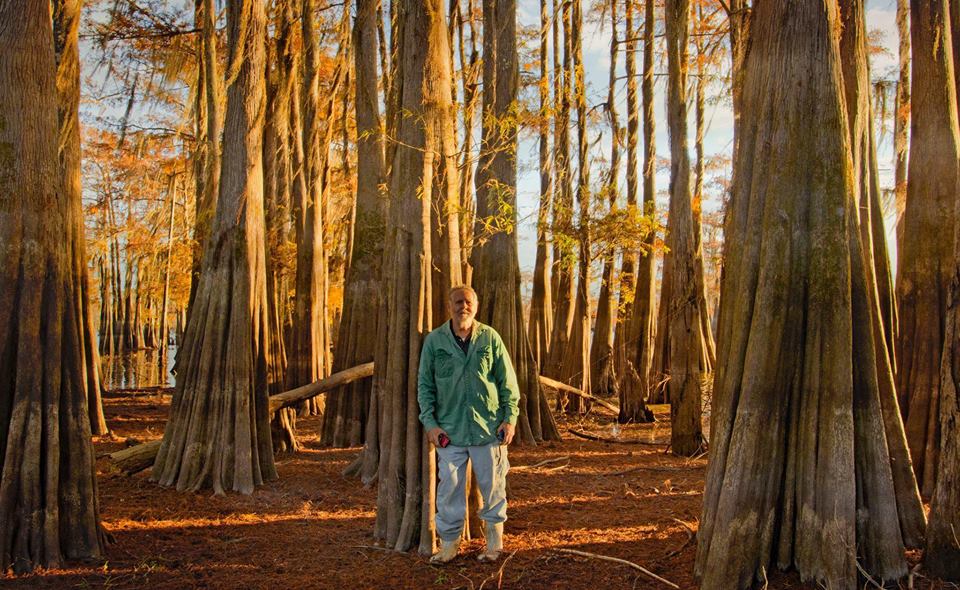Someone Who Mattered
Author Rheta Grimsley Johnson remembers a friend who understood the value of many things, especially silence.
All this happened after my second husband, Don, died in 2009. I could not suffer fools, who seemed all of a sudden to be everywhere. It was a regular fools’ convention, gathering outside my door.
Many wanted to compare their own grief with mine, as if we were in a global grief competition. When my mother died, they’d begin, meaning well and telling best how to cope, irritating beyond belief. Or, someone might recall with misty eyes, when my husband died 30 years ago, I swore never to remarry and have not. Bully. They congregated on my porch and ate and drank and laughed, all in the name of keeping me company. I wanted desperately to be alone. They left me alone when I wanted company. Fools, fools, fools. Everyone had an opinion about honoring the dead. Some lobbied for marble, replete with dates, else The Almighty would not know the deceased was deceased. In-laws and friends wanted some of the ashes to feel more a part of the sorrow. I resisted. I wanted to scatter most of Don’s ashes by myself in the Atchafalaya Swamp. I thought it fitting. His happiest hours were in that swamp. By himself. Problem was, I had a plan but no boat. But I knew someone who did. I drove all day from North Mississippi to Henderson, La., straight to the home of a friend who did not irritate me. Not then, not ever. Greg Guirard was standing in his yard as if we’d had an appointment. I told him my mission. “I’ll take you to a pretty place,” he said. That was it.
Because he was a crawfisherman, his yard always was full of boats of every size and description. Motors hung from tree limbs like over-sized fruit. He backed my old red Ford to one of his boats on a trailer, and quickly – we were trying to beat sunset – we drove to the nearest landing.
The pretty place was Bayou Benoit. Greg had a houseboat bobbing there. He disappeared, not literally, but leaving me alone to the most private of tasks. I don’t remember that he said a word. No intrusive or sentimental claptrap worthy of Hallmark. No suggestions about moments of silence. No toasts. Certainly no prayers. Greg got us back to the landing and my truck before dark. When Greg died last month, I mourned again. This time I find myself on the irritating side of the grief equation. He was a man who meant so much to so many people that I want to grab strangers by the lapels and tell my Greg stories, to explain his worth again and again. Now I am the noise. What was there about his calm presence that inspired so many? He taught literature, wrote books, took countless swamp photos, fought environmental battles against oil companies with his fellow crawfishermen. He reclaimed sinker logs, made beautiful cypress furniture, planted oak and cypress trees, lived simply, honored his elders, had an amazing sense of humor and was one of the best-read men I’ve ever known. And he helped a widow scatter her husband’s ashes. But none of that exactly explains why he will be remembered when so many of us will not. It is tempting – and irritating – to make a dead Greg into a super hero. “Greg,” I once said to him while tagging along to check crawfish traps. “You are a beacon of contentment.” “I’m a beacon of Lexapro,” he retorted. He was the most guileless of heroes, the most modest of men. For my money, it was mainly this that made Greg Guirard unforgettable: He knew when to stop talking and listen. His deafness made him bend forward as if he wanted to hear everything you might utter. As if yours was the most important voice, not his. And now, I perhaps have sated your curiosity about a giant of a man. I will take a page from Greg and from here on remember him in silence. Comments are closed.
|
Categories
All
Archives
July 2024
|
Shoofly Magazine Partners
Our Shoofly Partners are local businesses and organizations who share our mission to enrich community life in Bay St. Louis, Waveland, Diamondhead and Pass Christian. These are limited in number to maximize visibility. Email us now to become a Shoofly Partner!




























 RSS Feed
RSS Feed























